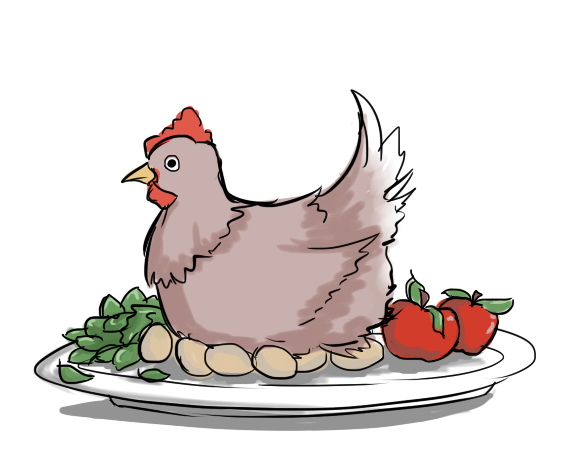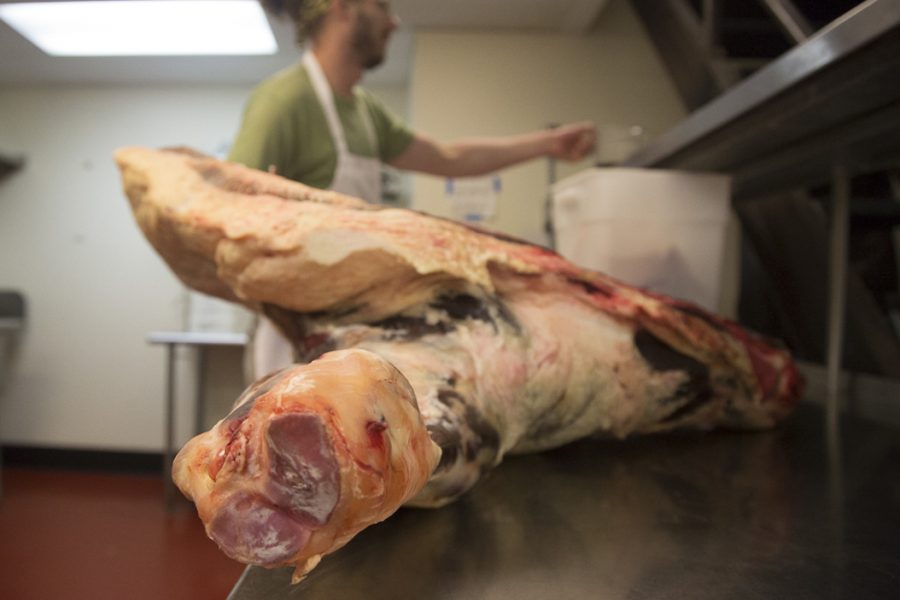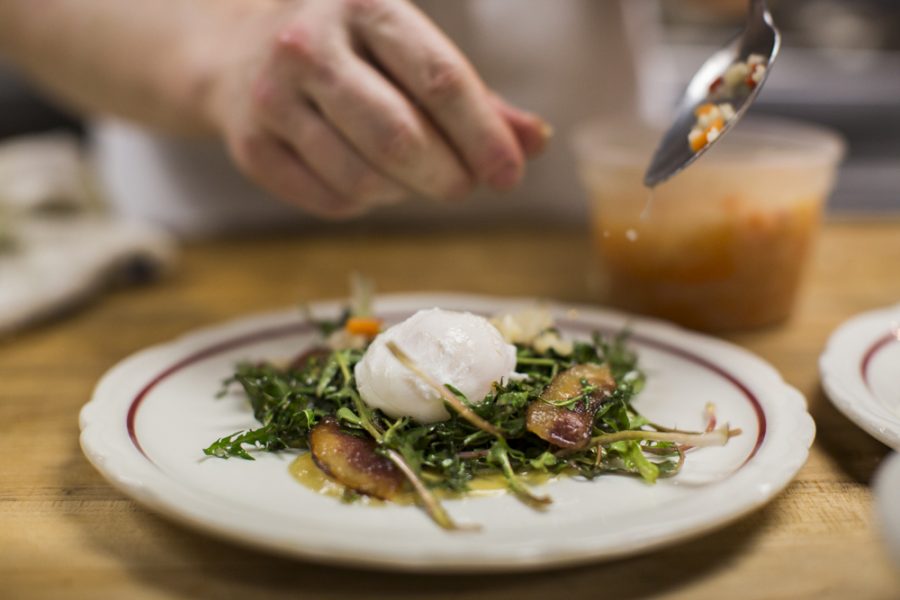Trevett Hooper has spent the past seven years crafting fine dining experiences — from the simplest hors d’oeuvres to the most complicated entrees — at Legume on North Craig Street with the freshest ingredients he can find.
But starting in June, next door to his former haute hangout, Hooper will use the energy put into homemade chicken broth and house-churned butter to cook up comfort food at Pie for Breakfast. In the process, he’s attempting to start a movement to make locally-sourced food accessible to everyone.
The concept of Pie for Breakfast grew out of Hooper’s lifelong love of “real simple American regional cuisine.”
“I love diners and cafes,” he said. “I want to make food that’s still diner food … that’s not so processed.”
Hooper idealizes a time from the 1930s and earlier, when roadside dives were showcases of the local land’s bounty, when menus reflected both the region and the season. But as fast food and chain restaurants grew, many independent shops also started to tap into national food distributors to streamline their supply chains, at the cost of local flavor.
That trend is now on the decline, however, according to Bob Batz Jr., a food journalist for 10 years for the Pittsburgh Post-Gazette. In fact, what he’s seen is a rising tide of quality food over the past few years.
While Batz is hesitant to use the phrase “farm-to-table” — because “everything comes from some kind of farm” — he noted Hooper and Legume’s particular success in turning local, high-quality ingredients into exemplary cuisine.
“We are surrounded by great farm territory,” Batz said.

According to Hooper, 75 percent of his produce and 98 percent of his meat at Legume comes from western Pennsylvania — the only exception being duck from the center of the state. The produce also changes seasonally so that in the summertime the percent of local produce can go as high as 90 percent.
Hooper plans to retain the same proportion of locally sourced food at Pie for Breakfast, with only a few exceptions, while keeping every plate under $15. This is a significant difference from Legume, where the rotating menu regularly has plates for $25 and greater.
“We’re never going to be as cheap as a roadside diner,” Hooper said. “[But] I want a lot of people to enjoy this.”
The biggest difference, then, will come from preparation, which often occurs behind the scenes. Hooper mentioned how a seemingly simple dish of fish, sauce and rice at Legume might have “12 steps … that are invisible” to the patron. At Pie for Breakfast, the food will be simpler and less layered, making it less expensive than the dishes at Legume.
Hooper is considering serving the food in a traditional format, the meat and three, where a set price gets the customer a meat of choice along with three sides of choice.
For the meat selection, Hooper said he’s looking into preparing fried chicken, a dish that requires a lot of preparation and specialization in the kitchen, as well as classics like chicken-fried steak.

Though he offered “no promises” come the June launch, Hooper said Pittsburgh’s varied ethnic migrants partially inspire his menu for Pie for Breakfast, with sides like haluski, a Polish dish of potato noodles with cabbage, and collard greens, inspired by the wave of African-American migrants who came to northern cities in the Great Migration.
In total, Hooper imagines having four to five “proteins” on the menu each day, with six to seven sides to pick from as well, rotating based on local availability.
“The local food movement can’t exist merely as a special occasion,” Hooper said.
Becoming an everyday restaurant — as opposed to one for “special occasions” — is critical for success in the Oakland food scene, according to Brandon Smith, co-owner of Fuel and Fuddle. While the gastropub has thrived, another business attempt of his in Oakland, Olio Trattoria — a sit-down Italian restaurant at the former location of Joe Mama’s Diner — didn’t work out.
While weekends were busy, Smith says Olio Trattoria gained a reputation as a “date night” spot with local college students, keeping the restaurant empty on weeknights.
“You can’t survive in Oakland on just the weekends,” Smith said.
With its location, Hooper recognizes his clientele will include a large student market. Pie for Breakfast’s North Oakland spot is centrally located between Pitt and Carnegie Mellon campuses, surrounded by students in off-campus housing.
Appealing to this student audience hasn’t been at the front of Hooper’s mind yet, but he knows making Pie for Breakfast seem less “standoffish” than the fine dining at Legume will be key to success.
To do so, he also plans on adding a breakfast counter to the restaurant for student commuters to stop in and grab a pastry and coffee, along with the cheaper prices and comfort food menu.
This focus on accessibility marks a new step for Hooper. As a proud father of five kids, he is starting to look at cooking less for the thrill of the gourmet and more as a simple pleasure of home life.
“This stage of my life I am less into fine dining,” Hooper said, “My goal for life [now] is to eat good everyday.”


